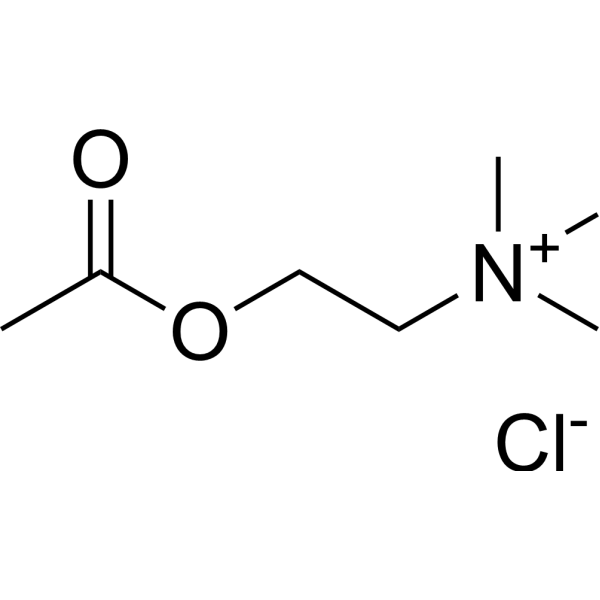Home
Products
Acetylcholine chloride



| Product Name | Acetylcholine chloride |
| Price: | Inquiry |
| Catalog No.: | CN01986 |
| CAS No.: | 60-31-1 |
| Molecular Formula: | C7H16ClNO2 |
| Molecular Weight: | 181.66 g/mol |
| Purity: | >=98% |
| Type of Compound: | Alkaloids |
| Physical Desc.: | White powder |
| Source: | |
| Solvent: | Chloroform, Dichloromethane, Ethyl Acetate, DMSO, Acetone, etc. |
| SMILES: | CC(=O)OCC[N+](C)(C)C.[Cl-] |
| Contact us | |
|---|---|
| First Name: | |
| Last Name: | |
| E-mail: | |
| Question: | |
| Description | Acetylcholine is a neurotransmitter that can induce the opening of calcium channels. Target: Calcium Channel; nAChR; mAChRAcetylcholine in vertebrates is the major transmitter at neuromuscular junctions, autonomic ganglia, parasympathetic effector junctions, a subset of sympathetic effector junctions, and at many sites in the central nervous system. It is generally not used as an administered drug because it is broken down very rapidly by cholinesterases, but it is useful in some ophthalmological applications.Acetylcholine chloride, more commonly referred to as just acetylcholine, is a cholinergic neurotransmitter that can induce the opening of calcium channels, as well as act on nicotinic and muscarinic acetylcholine receptors. Acetylcholine plays an important role at many sites in the central nervous system. The compound has been shown to have ophthalmological uses and can be broken down quickly by choliesterases. Studies show that non-neuronal acetylcholine influences many basic cells functions, such as mitosis, cells differentiation, cytoskeletal organization, and cell to cell contact, among other functions [1-3]. |
| Exact Mass | 181.086960 |
| PSA | 26.30000 |